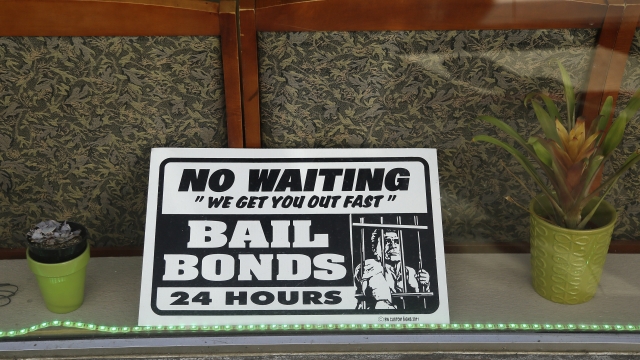As of Monday, Illinois is the first state in the country to ban cash bail, a long-fought and debated change that finally takes effect more than two years after lawmakers intended.
"The implementation of the Pre-trial Fairness Act will make Illinois the first state in the country to remove the price tag from the presumption of innocence," said Tanya Watkins, the executive director of Southsiders Organized for Unity and Liberation.
The Illinois Supreme Court overturned a lower court's decision to block the ban, which eliminates the requirement for defendants to post a cash bail so they can be released before trial instead of waiting it out behind bars.
"Today, Illinois is no longer criminalizing poverty, and the entire nation has their eyes on us," said Rep. Emanuel Chris Welch.
Illinois judges will still have the power to hold defendants in jail before trial, but a prosecutor has to argue they're a flight risk or a threat to public safety.
"Judges maintain extremely broad discretion, right? There has always been an enormous slate of options for judges, pre-trial, to put into place for individuals to return to court and to protect the public," said Erin George, the national director of policy for the Bail Project.
Abolishing cash bail was part of the SAFE-T Act, an expansive criminal justice overhaul passed by the Illinois legislature in 2021. A state judge struck down the law, ruling the bail provision could only be enacted with an amendment to the state's constitution, not with a new law.
SEE MORE: Another inmate has died at Georgia jail where Trump was booked
But Chief Justice Mary Jane Theis wrote in the supreme court's decision: "Our constitution creates a balance between the individual rights of defendants and the individual rights of crime victims."
Critics of the law point to the recent rise in homicides and crime nationwide as a byproduct of changing bail policies.
"We want to be safe in our communities, and our families want to feel safe. This is bad for the police. They work hard to take dangerous criminals off the street, and this creates a revolving door to put them right back on the streets," said Rep. Mary Miller.
Critics also say cash bail is key in ensuring defendants who are released from jail actually show up for court proceedings, and that the ruling enables violent criminals to roam free and commit other crimes, while waiting on their trial date.
"This effort to detain those who pose a real threat to our public, rather than detain those who are simply poor, is the right thing to do," said Kim Foxx, the Cook County State’s Attorney.
But supporters of the ban say cash bail is a penalty on the poor — defendants with money can pay for their ticket out of jail, while those who are financially strapped have to wait behind bars.
"These are folks who just need extra support to have access to the same system of justice that the wealthy always have," said Erin George.
And people of color are often the most affected.
While the impact on crime is up for debate, researchers from Loyola University Chicago believe far fewer people will ultimately be detained — about 22%, or about 15,500 people out of 70,000 eligible offenders could wind up behind bars.
Trending stories at Scrippsnews.com




